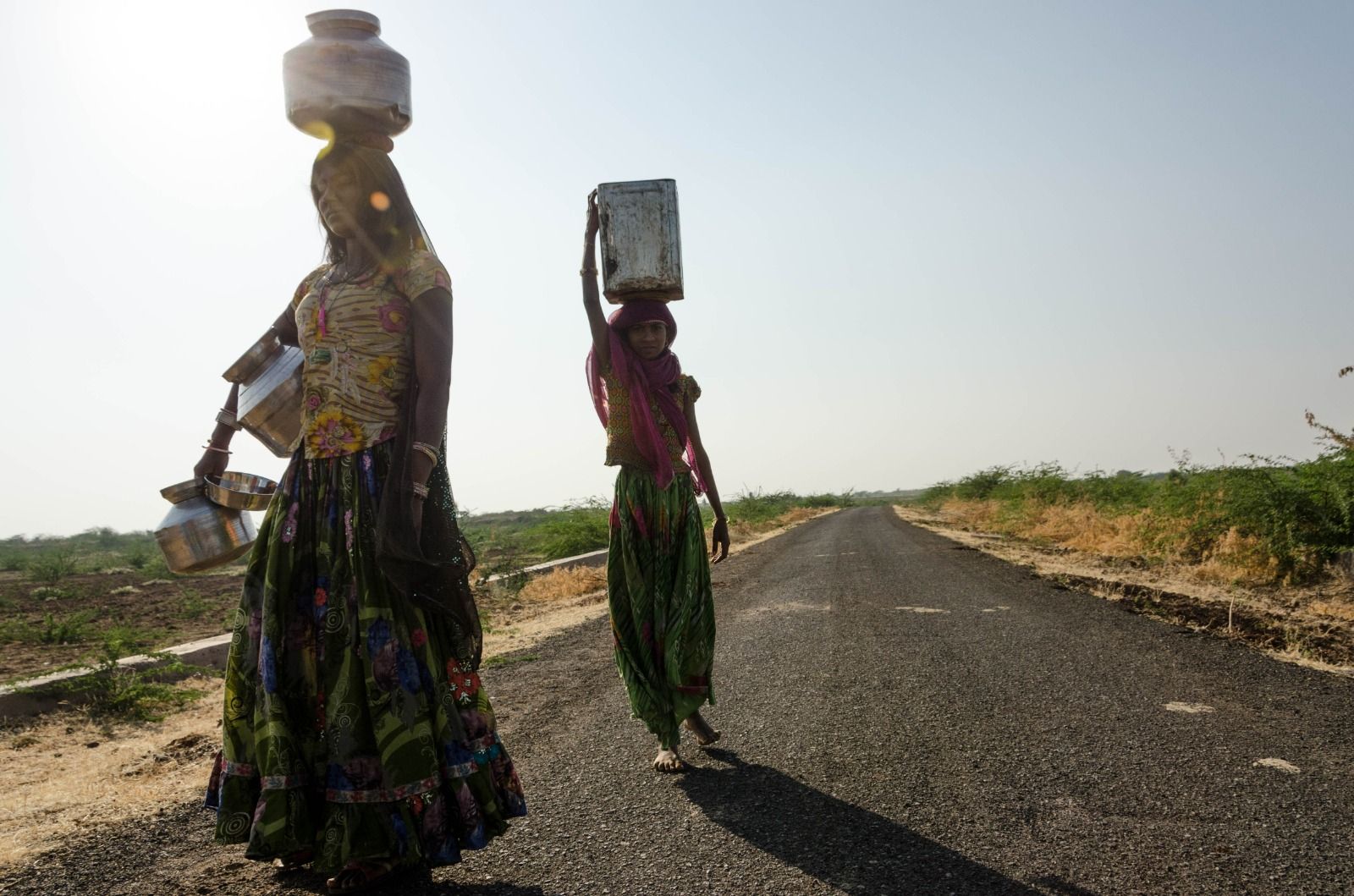
By Dr. Sahil Hebbar, SEWA, India
| Elaben Bhatt always said that, “social security is both a concept as well as a system. It envisages that the members of a community shall be protected by collective action against social risks – many of the risks are beyond their control and for which they have no wherewithal or countervailing power.” |
The increasing frequency and intensity of climate shocks are having a devastating and disproportionate impact on poor informal sector women workers, 2.9 million of whom are members of Self Employed Women’s Association (SEWA). Members’ livelihoods and incomes decrease by 30-50% due to decreased work efficiency, reduced work hours, increased raw material expenses, spoilage of goods, loss of customers, and reduced work days due to heat-related illnesses. SEWA’s climate insurance programme, started in 2023, aims to build the resilience of informal sector women workers against climate shocks.
The heat insurance product was piloted in 2023 and covered 21,000 SEWA members across 5 districts in Gujarat. In addition to the insurance product, each of the 21,000 members was provided with climate adaptation equipment like solar light, tarpaulin sheet, overhead umbrella, or insulated water jug. It was a parametric insurance product with the sole parameter being daily maximum temperatures. In 2024, the programme was scaled up to 50,000 members across 22 districts across Gujarat, Rajasthan, and Maharashtra. Instead of the climate adaptation equipment, SEWA introduced a cash assistance layer that triggered at lower temperatures (i.e. at 40°C) than the insurance product.
The product did not trigger in 2023. However, in 2024, the cash assistance layer triggered in all 22 districts and members received the assistance of INR 400. In addition, the insurance layer triggered in 17 out of the 22 districts, and 46,339 members received payouts ranging from INR 151 to INR 1651. An added benefit from the programme was financial inclusion for 17,000 members without bank accounts or with dormant accounts, who SEWA linked to the formal financial system by opening/activating accounts.
SEWA’s parametric insurance pilot highlighted several lessons. First, there is a need to incentivise low-income communities in the form of premium subsidisation, cash assistance, or climate adaptation equipment until they fully understand the value of insurance. Second, given the limited knowledge about insurance, especially parametric climate insurance, there is a need for institutional and individual capacity building. CSOs, CBOs, and NGOs can play a vital role in this regard. Third, the parametric insurance product should bundle coverage for multiple climate shocks like excessive rainfall and cyclones, in addition to heatwaves. Fourth, the parametric product should incorporate multiple parameters like humidity and night-time temperatures. Fifth, integrating insurance with contingency loans post-climate shocks, index loans, commitment savings, and micro-pension schemes will support both immediate recovery and long-term resilience building. Sixth, insuring SMEs and SHGs as group policyholders will help scale the product quickly and in an affordable manner, thus ensuring comprehensive protection against climate shocks.
Disclaimer: The views expressed in this piece are those of the author/s and do not necessarily reflect the views or policies of AIDMI.